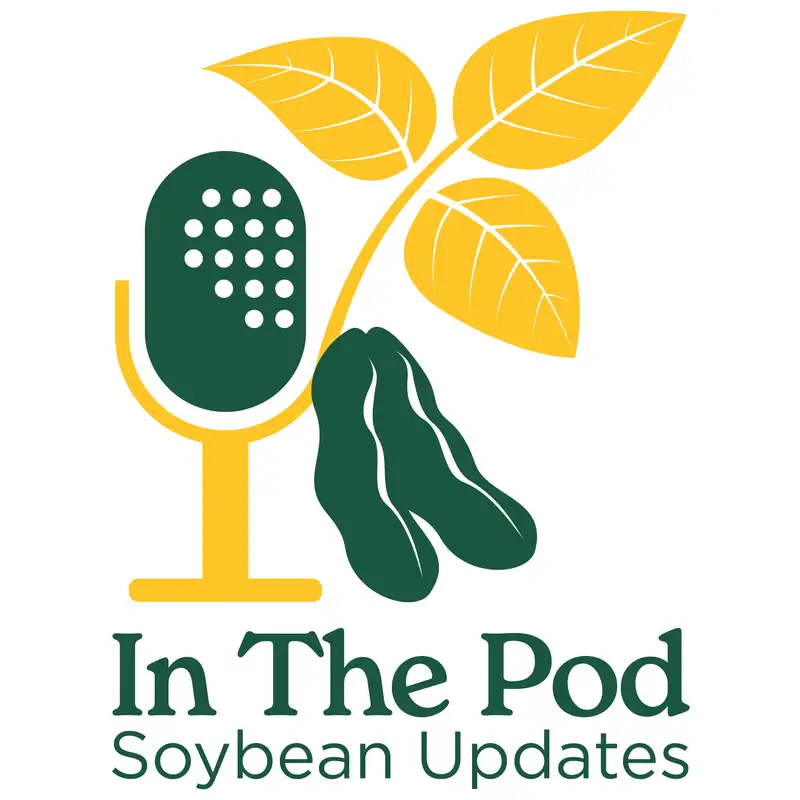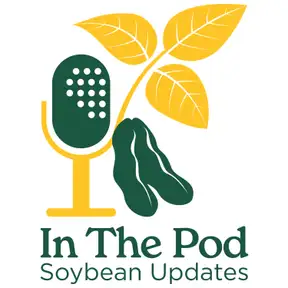07/31/25 License to Spray: Demystifying Pesticide Certification
You're listening to In The Pod, soybean updates, a weekly trek into the latest soybean information from NDSU Extension. Soybean farmers have some specific tools to assist in producing high quality crops. Pesticides are one of those tools, but keeping up with the rules and regulations is complex. Here to explain the pesticide program is Madeleine Smith, NDSU Extension pesticide specialist. Madeleine, what is the NDSU pesticide program?
Madeleine Smith:Yeah. So at its core, the NDSU Pesticide Program helps North Dakotans obtain the certification as required by the Environmental Protection Agency for selling, purchasing, or applying restricted use herbicides. So that includes things like herbicides, insecticides, fungicides, and rodenticides, or indeed anything that on the label makes a claim that it will control a pest in some shape or form. The pesticide program follows a training plan that's approved by the Environmental Protection Agency according to the federal insecticide, fungicide, and rodenticide act, also known as FIFRA.
Bruce Sundeen:So what is the mission of NDSU Pesticide Program?
Madeleine Smith:Yeah. So along with the certification portion of the program, we're really geared to providing accurate science based training and information to pesticide applicators, empowering them to apply pesticides in ways that are safe for themselves, the public, and in the environment in which they're working.
Bruce Sundeen:How many pesticide applicators do we have in North Dakota?
Madeleine Smith:So right now, the program currently serves over 5,000 commercial applicators in the state and over 10,000 private applicators.
Bruce Sundeen:How does certification work?
Madeleine Smith:There's a couple of steps to the process. First, anybody who is wishing to apply a restricted use pesticide has to try and decide which type of applicator there are. So we have three broad classes, private, public, commercial, and then also those that are dealing in pesticides. And so for example, a private applicator would be somebody who is wanting to buy or use a restricted use pesticide on property owned or rented by themselves or their employer, or if they apply without compensation other than trading of personal services between producers of agricultural commodities on the property of another person. So by and large, that covers an awful lot of our farmers and ranchers out there. They fall under the private applicator category. We also have commercial applicators. So that's a person who by contract or for hire engages in the business of applying pesticides for compensation. So essentially they're getting paid for the services that they're providing. And then we also have a public applicator class, and that's people who are applying pesticides other than ready to use pesticides for things like government agencies and municipal corporations.
Bruce Sundeen:Madeleine, are there any big changes coming down the road?
Madeleine Smith:I mentioned the training and certification plan earlier. EPA asked us a number of years ago, in fact, all states to kind of revise those training and certification plans. So the North Dakota plan was approved in 2023, and we're working to implement that plan by January 2027. And that's going to include some changes as far as categories, particularly for our commercial applicators. So there'll be some new categories, things like the aquatics category. So if folks are applying pesticides around bodies of waters, ditches, sloughs, that kind of thing, they might need that category. And then we're going to break out things like non soil fumigation, and other types of fumigation. So a few changes in that. We're also gonna have things like closed book exams. So for the longest while in North Dakota, the exams that people take have been open book, and that's going to change to closed book exams.
Bruce Sundeen:Madeleine, where can people get more information about pesticide applicator certification?
Madeleine Smith:You can get it two ways. You can go to ndsupesticide.org, and we have all the information on our website there about categories and requirements. And you can also call the extension pesticide office on (701) 231-7180.
Bruce Sundeen:Thanks, Madeleine. Our guest has been Madeleine Smith, NDSU extension pesticide specialist. You're listening to In The Pod, soybean updates, a weekly trek into the latest soybean information from NDSU Extension, supported by the North Dakota Soybean Council.

